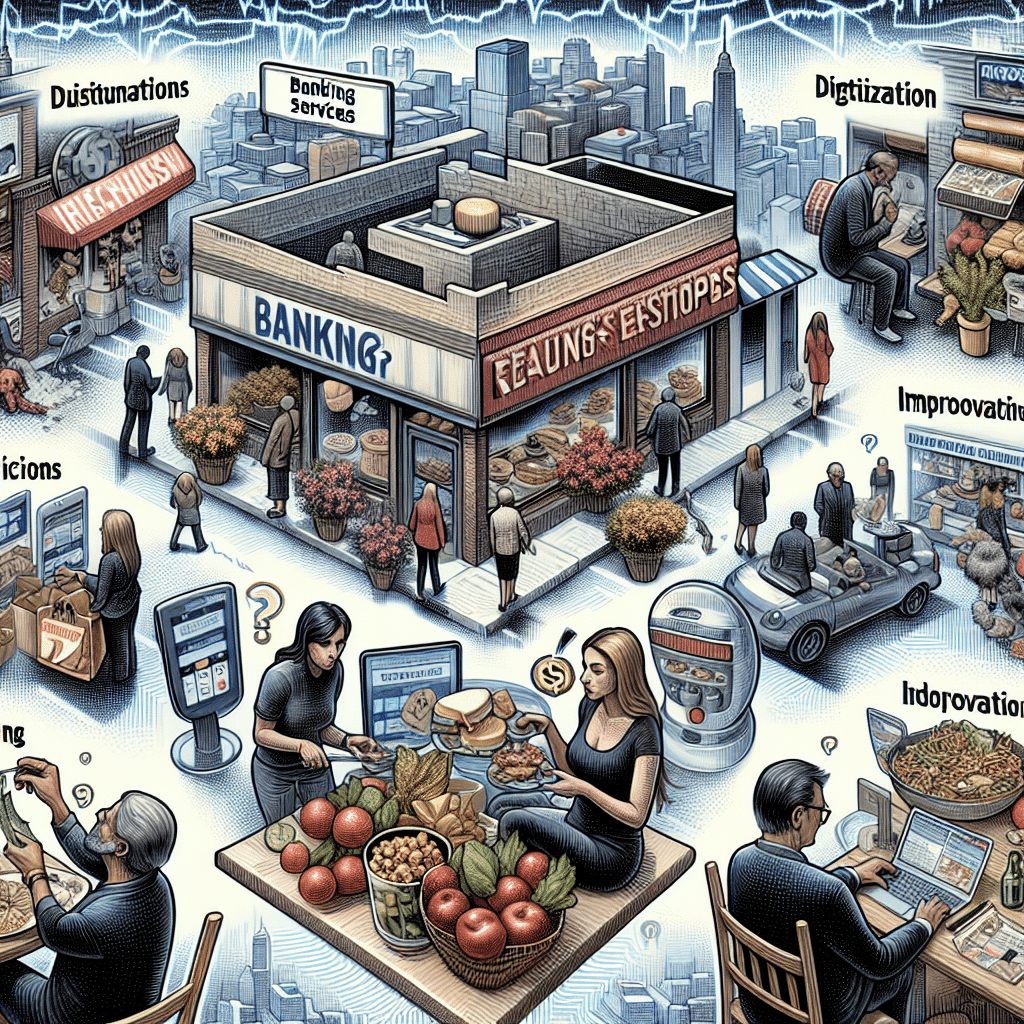Recession-era Innovations: Adapting to Consumer Behavior Changes
-
Table of Contents
- Recession-Era Innovations: Adapting to Consumer Behavior
- Understanding Consumer Behavior in Recessions
- Innovative Business Strategies During Recessions
- Cost-Effective Solutions and Value Propositions
- Enhanced Customer Experience
- Leveraging Technology
- Marketing and Communication Adjustments
- Case Studies of Recession-Era Innovation
- Apple’s Continued Innovation
- Procter & Gamble’s Focus on Core Brands
- Airbnb’s Disruptive Business Model
- Adapting Marketing Strategies to Recession Behaviors
- Statistics and Trends in Recession Innovation
- Conclusion: Key Takeaways for Businesses
- ETprotein: Meeting Nutritional Needs in Challenging Times
Recession-Era Innovations: Adapting to Consumer Behavior

Recessions are challenging times for both consumers and businesses. Economic downturns lead to changes in consumer behavior, often characterized by reduced spending, increased saving, and a heightened demand for value. Companies that can adapt to these shifts are more likely to survive and even thrive during tough economic times. This article explores how businesses have innovated in response to consumer behavior changes during recessions, providing valuable insights and examples of successful strategies.
Understanding Consumer Behavior in Recessions
During a recession, consumers typically adjust their spending habits in several ways:
- They prioritize essential over discretionary spending.
- There is an increased focus on value, with consumers seeking deals, discounts, and better prices.
- Consumers may delay large purchases or opt for lower-cost alternatives.
- Brand loyalty can diminish as price becomes a more significant factor in purchasing decisions.
Businesses that understand and respond to these changes can maintain relevance and continue to engage their customer base.
Innovative Business Strategies During Recessions
Several strategies have proven effective for businesses operating in a recessionary environment:
Cost-Effective Solutions and Value Propositions
Companies often introduce more affordable product lines or services to meet the demand for value. For example, during the 2008 recession, Hyundai launched an assurance program that allowed buyers to return their cars if they lost their jobs, addressing the fear of making a significant investment during uncertain times.
Enhanced Customer Experience
Improving the customer experience can help retain customers even when they’re spending less. Amazon’s focus on customer service and fast, free shipping has made it a go-to retailer for consumers looking for convenience and reliability.
Leveraging Technology
Businesses that invest in technology can streamline operations, reduce costs, and offer innovative services. Netflix transitioned from a DVD rental service to a streaming platform just before the 2008 recession, capitalizing on the shift towards in-home entertainment and ultimately changing the media landscape.
Marketing and Communication Adjustments
Effective communication that empathizes with consumers’ economic struggles can strengthen brand loyalty. During the Great Recession, Walmart’s marketing campaigns focused on the message of saving money and living better, resonating with consumers’ desires to stretch their dollars.
Case Studies of Recession-Era Innovation
Several companies have successfully navigated recessions through innovation. Here are a few notable examples:
Apple’s Continued Innovation
Despite the 2001 recession, Apple introduced the iPod, which revolutionized the music industry. Their commitment to innovation continued during the 2008 recession with the launch of the iPhone 3G, which solidified their position in the smartphone market.
Procter & Gamble’s Focus on Core Brands
During economic downturns, Procter & Gamble concentrates on marketing and developing its core brands, which are household names. This strategy maintains their market presence and ensures they remain a top choice for consumers.
Airbnb’s Disruptive Business Model
Founded during the 2008 recession, Airbnb offered a new solution for budget-conscious travelers and provided an income source for homeowners. Their platform met the needs of the changing market and has since become a major player in the hospitality industry.
Adapting Marketing Strategies to Recession Behaviors
Marketing during a recession requires a nuanced approach. Here are some strategies businesses have used:
- Emphasizing value and affordability in messaging.
- Offering flexible payment options or financing.
- Creating loyalty programs to encourage repeat business.
- Using social media and content marketing to engage customers cost-effectively.
By adapting their marketing strategies, businesses can maintain a connection with their customers and remain top-of-mind when purchasing decisions are made.
Statistics and Trends in Recession Innovation
Research has shown that companies that invest in innovation during recessions can achieve significant long-term gains. A study by the Harvard Business Review found that 14% of companies outperformed their competitors by at least 10% after a recession. These companies often invested in new technologies and market opportunities, despite the economic climate.
Conclusion: Key Takeaways for Businesses
To succeed during a recession, businesses should focus on understanding and responding to changes in consumer behavior. Offering value, enhancing customer experience, leveraging technology, and adapting marketing strategies are all effective ways to navigate economic downturns. Companies that innovate and remain customer-focused can emerge from recessions stronger and more competitive.
ETprotein: Meeting Nutritional Needs in Challenging Times
In times of economic uncertainty, consumers often become more health-conscious and look for affordable ways to maintain their well-being. ETprotein’s range of high-quality, organic bulk vegan proteins and L-(+)-Ergothioneine (EGT) products cater to this need. Their non-GMO, allergen-free proteins are ideal for nutraceutical, pharmaceutical, and food and beverage industries, offering a cost-effective solution for consumers prioritizing health and nutrition.
For businesses looking to adapt their product offerings to meet the demands of health-conscious consumers during a recession, ETprotein provides a reliable source of high-quality protein products. Their commitment to excellence and customer service makes them a valuable partner for companies aiming to innovate and thrive in challenging economic times.
About ETprotein:
ETprotein, a reputable protein and L-(+)-Ergothioneine (EGT) Chinese factory manufacturer and supplier, is renowned for producing, stocking, exporting, and delivering the highest quality organic bulk vegan proteins and L-(+)-Ergothioneine. They include Organic rice protein, clear rice protein, pea protein, clear pea protein, watermelon seed protein, pumpkin seed protein, sunflower seed protein, mung bean protein, peanut protein, and L-(+)-Ergothioneine EGT Pharmaceutical grade, L-(+)-Ergothioneine EGT food grade, L-(+)-Ergothioneine EGT cosmetic grade, L-(+)-Ergothioneine EGT reference grade and L-(+)-Ergothioneine EGT standard. Their offerings, characterized by a neutral taste, non-GMO, allergen-free attributes, with L-(+)-Ergothioneine purity over 98%, 99%, cater to a diverse range of industries. They serve nutraceutical, pharmaceutical, cosmeceutical, veterinary, as well as food and beverage finished product distributors, traders, and manufacturers across Europe, USA, Canada, Australia, Thailand, Japan, Korea, Brazil, and Chile, among others.
ETprotein specialization includes exporting and delivering tailor-made protein powder and finished nutritional supplements. Their extensive product range covers sectors like Food and Beverage, Sports Nutrition, Weight Management, Dietary Supplements, Health and Wellness Products, and Infant Formula, ensuring comprehensive solutions to meet all your protein needs.
As a trusted company by leading global food and beverage brands and Fortune 500 companies, ETprotein reinforces China’s reputation in the global arena. For more information or to sample their products, please contact them and email sales(at)ETprotein.com today.














